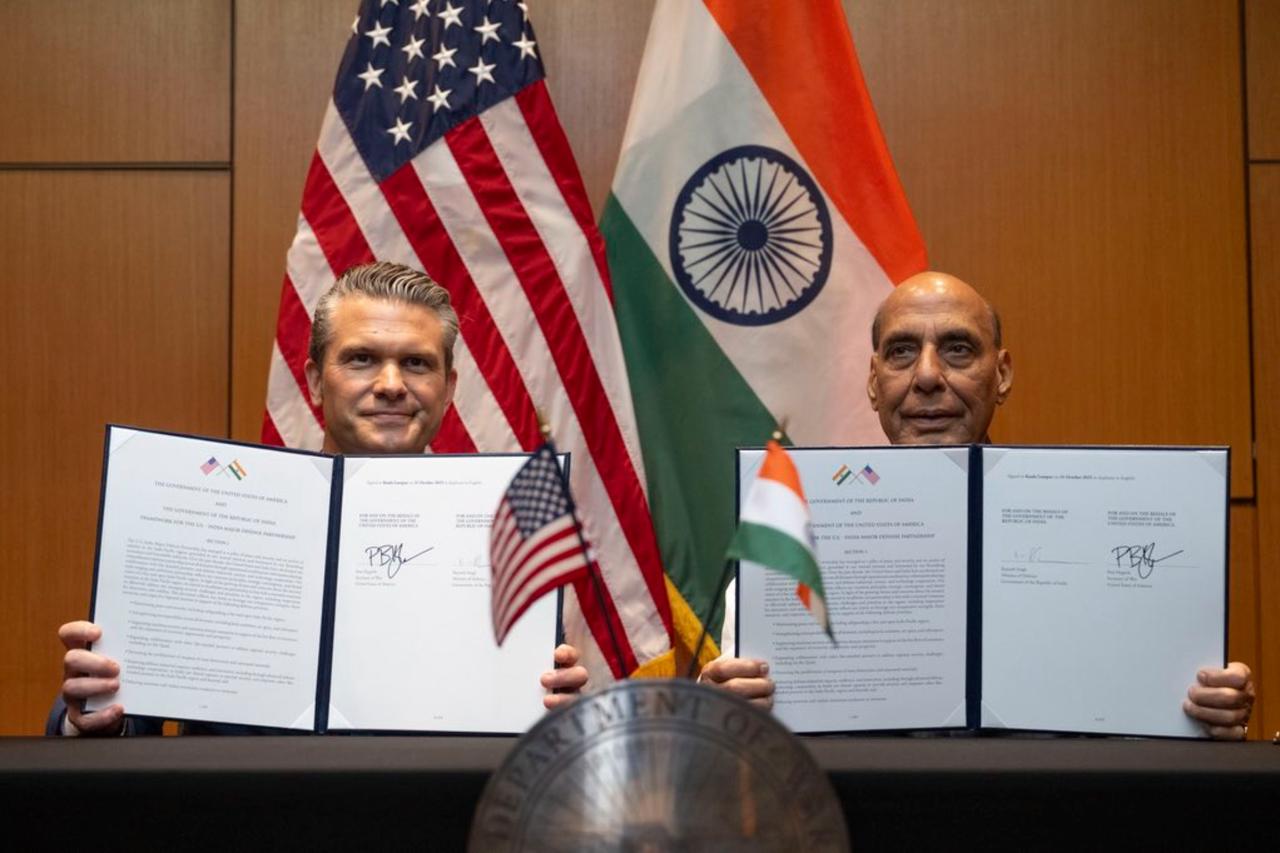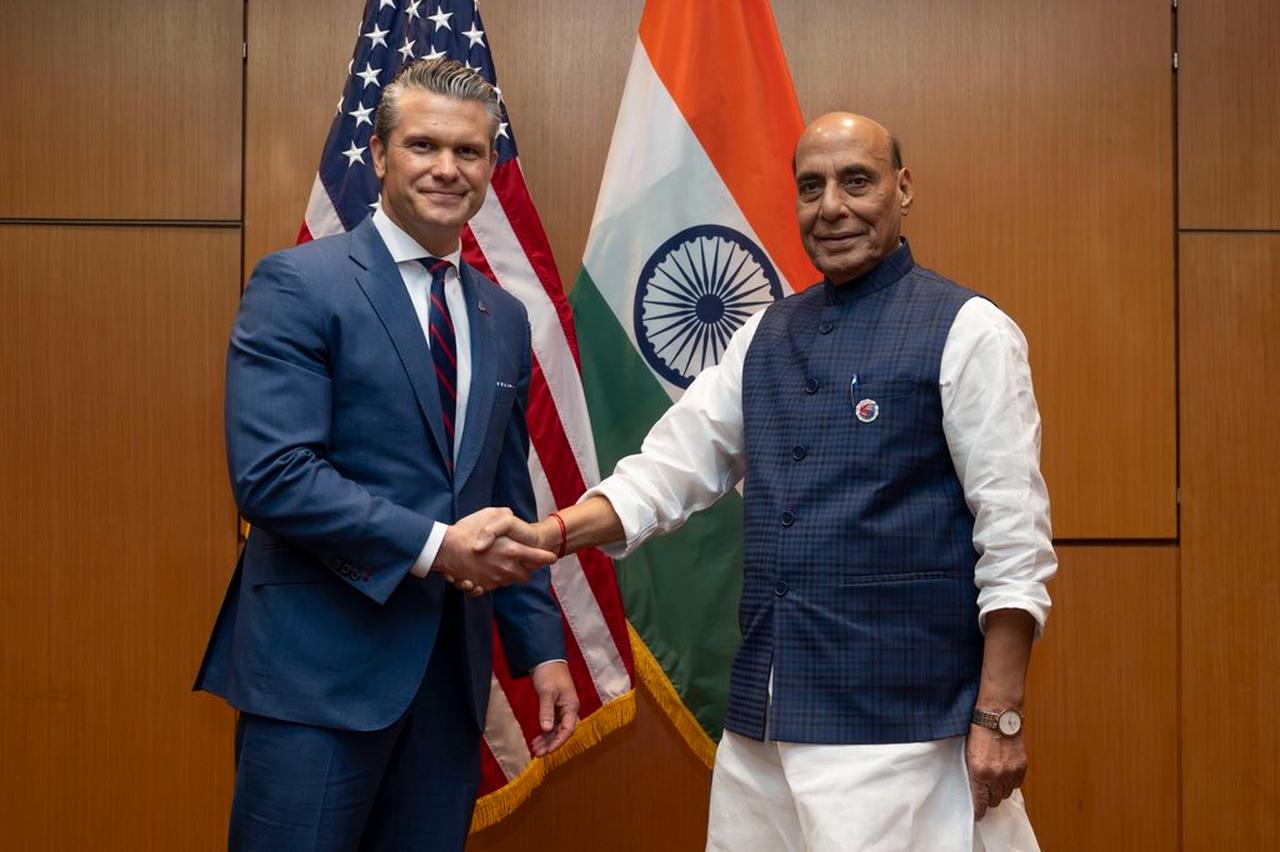
The United States and India signed a 10-year defense framework on Friday following a meeting between U.S. Defense Secretary Pete Hegseth and Indian Defense Minister Rajnath Singh in Kuala Lumpur on the sidelines of the ASEAN Defense Ministers’ Meeting.
Hegseth said the framework would strengthen bilateral cooperation across multiple fronts, including coordination, intelligence sharing, and defense technology.
Posting on X, he described the pact as "a cornerstone for regional stability and deterrence," adding that defense ties between Washington and New Delhi "have never been stronger."
Singh, in a separate statement on X, called the meeting "fruitful" and said the newly signed "Framework for the U.S.-India Major Defense Partnership" would provide long-term policy direction to the entire spectrum of defense relations between the two countries.
He said the agreement reflects a growing "strategic convergence" and will usher in a "new era" in the bilateral partnership.
Both defense leaders are attending the two-day ASEAN Defense Ministers’ Meeting in Kuala Lumpur, where regional security issues—particularly concerning the South China Sea—remain at the forefront.
The summit began Friday in Kuala Lumpur, bringing together ministers from ASEAN member states alongside counterparts from the US, China and India.
The 12th ASEAN Defense Ministers-Plus meeting, which includes dialogue partners such as Russia, Australia, Japan, South Korea, and New Zealand, will run until Sunday and has already seen the approval of a record number of new initiatives.
Earlier in the day, Hegseth met Chinese Defense Minister Dong Jun and expressed concerns over Beijing’s naval maneuvers around Taiwan, saying they pose risks to the security of U.S. allies and partners in the Indo-Pacific.
The signing comes days after Indian External Affairs Minister S. Jaishankar met U.S. Secretary of State Marco Rubio in Kuala Lumpur.
The two discussed bilateral relations, regional developments, and global challenges. In a post on X, Jaishankar said he "appreciated the discussion on bilateral ties as well as regional and global issues," signaling a coordinated approach across diplomatic and defense domains.

While the defense partnership continues to expand, trade discussions between the two nations are also progressing. Indian Commerce Minister Piyush Goyal recently emphasized that New Delhi would not sign any trade deal "in haste" or accept terms that could restrict its economic choices, referring to U.S. President Donald Trump’s calls to halt purchases of Russian oil. Trade agreements should be based on "trust and long-term ties," he stressed.
Currently, the United States imposes a 50% tariff on Indian exports, a measure introduced in August.
Commerce Secretary Rajesh Agrawal later confirmed that talks on the proposed Bilateral Trade Agreement—first introduced by Prime Minister Narendra Modi and former U.S. President Donald Trump—are "progressing well," with both sides "converging on most points," according to Indian media.